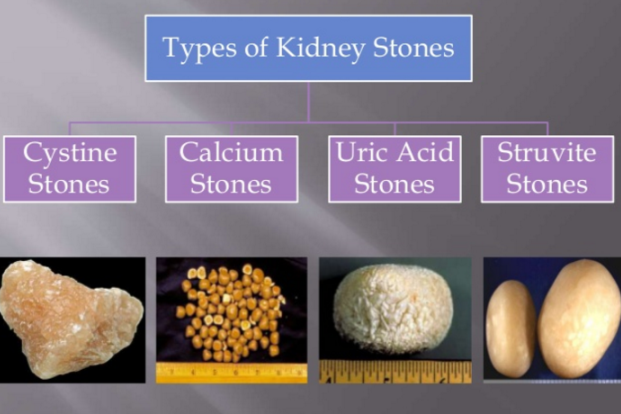Kidney Stones vs UTI: Understanding the Overlapping Effects and Treatment Strategies
Kidney Stones vs UTI: Understanding the Overlapping Effects and Treatment Strategies
Blog Article
Checking Out the Symptoms and Causes of Kidney Stones in Comparison to Urinary System Tract Infections: An In-depth Guide
The exploration of kidney rocks and urinary tract infections (UTIs) discloses a complex interplay of signs and symptoms and underlying reasons that warrant cautious examination. While both problems can lead to hematuria, they provide distinctive clinical functions and develop from various etiological factors. Comprehending the subtleties of each problem is essential for efficient medical diagnosis and management. What are the essential distinctions in their signs and symptoms, and how might these inform treatment methods? The solution to these questions may offer essential insights into the avoidance and treatment of these typical urological problems.
Introduction of Kidney Stones
Kidney stones, likewise referred to as renal calculi, type when certain substances in the urine crystallize and aggregate, leading to the advancement of difficult deposits within the kidneys. These stones can differ in dimension, varying from a grain of sand to a golf sphere, and can be composed of various materials, one of the most usual being calcium oxalate, uric acid, struvite, and cystine. The development of kidney rocks is influenced by a number of elements, including nutritional behaviors, liquid intake, and genetic proneness.
Signs and symptoms of kidney rocks may include extreme discomfort in the back or side, blood in the urine, nausea, and constant peeing, especially as the stone relocates with the urinary system. Medical diagnosis normally includes imaging studies such as ultrasound or CT scans, alongside urinalysis to recognize the stone's composition.
Therapy choices differ based upon the size and kind of stone, as well as the extent of signs (Kidney Stones vs UTI). Small rocks may pass normally with increased liquid intake, while bigger stones might need medical treatments such as lithotripsy or surgical elimination. Comprehending the pathophysiology and threat aspects connected with kidney rocks is important for reliable prevention and management
Review of Urinary System Infections
Urinary tract infections (UTIs) are typical microbial infections that influence any part of the urinary system, including the kidneys, ureters, bladder, and urethra. They mostly occur when germs, usually from the gastrointestinal tract, enter the urinary system, leading to inflammation and infection.
The occurrence of UTIs is especially greater in females than men, primarily because of physiological distinctions, such as a much shorter urethra. Threat variables consist of sexual activity, certain contraceptive methods, urinary retention, and dehydration. The diagnosis of UTIs is generally confirmed via pee tests, which may reveal the presence of bacteria, white blood cells, or red blood cells.

Symptoms of Kidney Stones
The pain connected with kidney stones can manifest in various means, usually leading people to seek medical attention. Among read here the most common signs and symptoms is extreme pain, generally localized in the reduced back or side, which may radiate to the abdominal area or groin. This discomfort, typically described as sharp or cramping, can take place unexpectedly and may fluctuate in strength.
Furthermore, individuals might experience hematuria, or blood in the urine, which can vary from microscopic amounts to visible discoloration. This symptom may be accompanied by changes in urinary system routines, such as boosted regularity or urgency, along with pain during peeing. Nausea and Read Full Report vomiting are also prevalent, typically resulting from the body's response to extreme discomfort.
In some instances, individuals might experience fever and cools, specifically if an additional infection creates due to the obstruction brought on by the stones. In general, the mix of severe pain, hematuria, modified urinary system patterns, and gastrointestinal signs can provide significant understanding right into the existence of kidney stones, calling for punctual clinical evaluation and intervention. Comprehending these signs and symptoms is critical for timely diagnosis and efficient administration of the problem.
Signs And Symptoms of Urinary System Tract Infections
Infections within the urinary tract typically provide a variety of distinct signs and symptoms that can considerably affect everyday life. One of the most typical signs and symptoms consist of a relentless impulse to pee, usually come with by a burning experience throughout peeing, called dysuria. People might likewise experience boosted regularity of peeing, creating little amounts of urine each time.
Other notable signs and symptoms consist of smelly or gloomy pee, which may indicate the presence of bacteria or pus. In some instances, pee might appear red or pink as a result of the visibility of blood, a problem called hematuria. Additionally, individuals might experience pelvic pain or pressure, which can further exacerbate the sensation of seriousness.
Systemic symptoms might additionally materialize, such as fever, cools, and tiredness, especially if the infection has actually risen to the kidneys. It is necessary to acknowledge these symptoms early, as unattended urinary system tract infections can bring about a lot more severe difficulties. Kidney Stones vs UTI. Trigger medical focus is recommended when these symptoms are observed, permitting suitable diagnostic analysis and treatment to alleviate pain and prevent more health concerns
Root Causes Of Each Problem
Frequently, kidney stones and urinary system system infections occur from unique yet occasionally overlapping causes that can impact people in different ways. Dehydration, insufficient fluid consumption, and high-sodium diet regimens can exacerbate these conditions, promoting condensation within the urinary system tract.

Recognizing these distinctive reasons is vital for avoidance and treatment. Kidney Stones vs UTI. While lifestyle modifications might minimize the danger of kidney stones, ideal health and punctual treatment of urinary system infections are crucial for lowering their reoccurrence and associated complications
Verdict
In summary, kidney stones and urinary system tract infections existing distinct signs and underlying reasons. Kidney stones are defined by severe pain and metabolic her explanation elements, while urinary system tract infections mainly entail microbial infections resulting in urinary system seriousness and discomfort. Although both problems can lead to hematuria, their formation systems differ dramatically. Understanding these distinctions is essential for efficient diagnosis and therapy, ultimately boosting person outcomes for those impacted by either condition.
The expedition of kidney stones and urinary system tract infections (UTIs) discloses a complex interaction of signs and symptoms and underlying causes that necessitate careful assessment.Urinary system tract infections (UTIs) are typical microbial infections that affect any type of component of the urinary system, consisting of the kidneys, ureters, bladder, and urethra.Frequently, kidney stones and urinary system system infections arise from distinct yet often overlapping causes that can influence people differently.In summary, kidney rocks and urinary system system infections existing distinct signs and underlying reasons. Kidney rocks are identified by extreme pain and metabolic factors, while urinary tract infections primarily include bacterial infections leading to urinary seriousness and pain.
Report this page